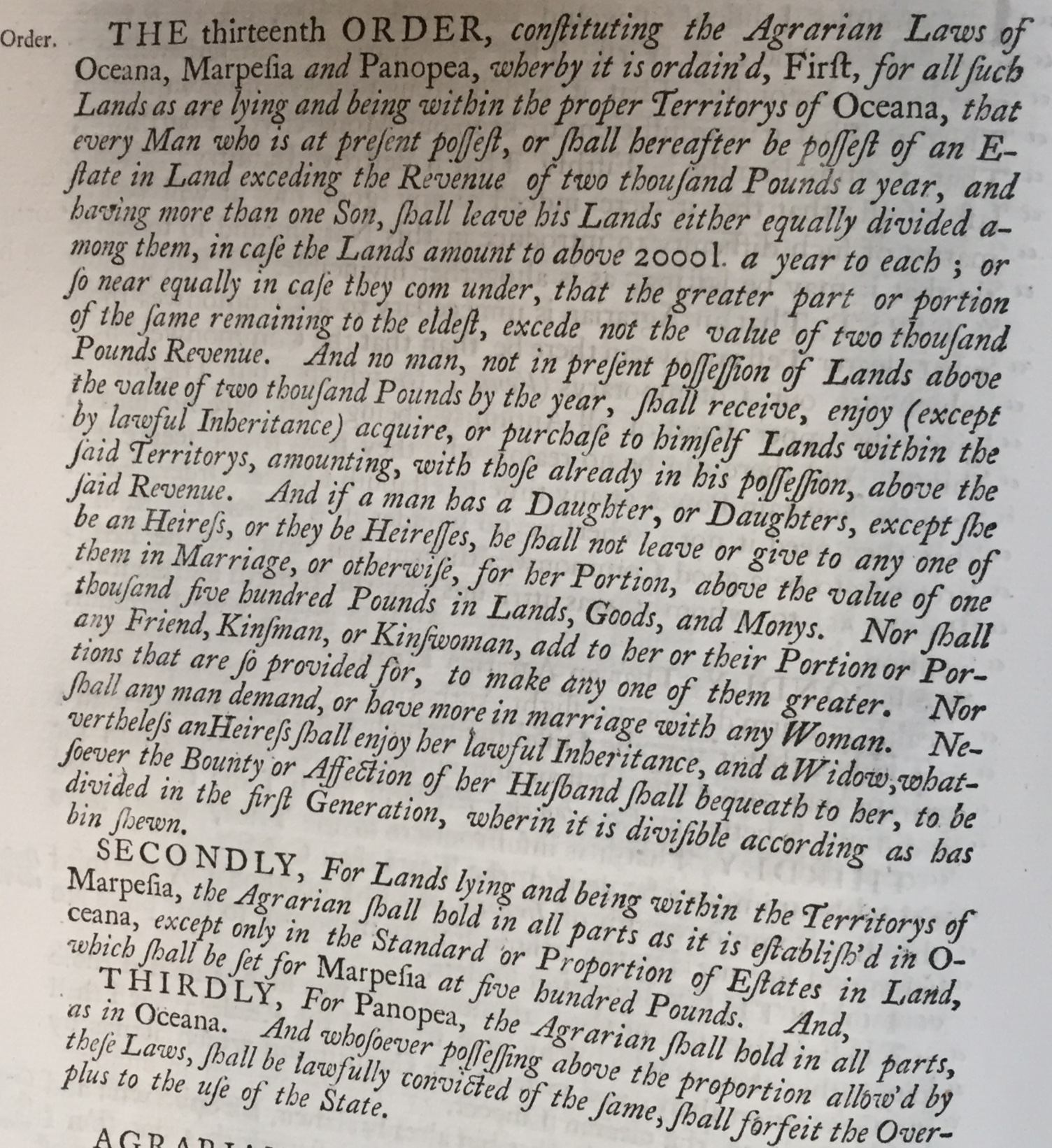In previous blogposts I have explored the ways in which James Harrington drew on the ideas of earlier thinkers. So far my focus has been on figures who remain well known today: Niccolò Machiavelli, Thomas Hobbes and Francis Bacon. But Harrington was also inspired by thinkers whose names have not survived so well in popular memory.
Petrus Cunaeus, reproduced from Wikimedia Commons.
One of these is the Dutch author Peter Cunaeus whose book De Republica Hebraeorum appeared in 1617 as part of a series of works produced by the Dutch printer Elsevier on past and present republics. It was translated into English by Clement Barksdale in 1653, not long after the English had established their own 'Commonwealth or Free State'.
Harrington was particularly interested in two aspects of Cunaeus's account of the Hebrew Commonwealth. The first of these was the law of jubilee. This stated that every fifty years land that had been bought or alienated in the intervening period would be returned to its original owner. Cunaeus referred to this practice as the 'lex Agrarian Hebraeorum', which was translated by Barksdale as the 'Agrarian Law' (Petrus Cunaeus, Of the Common-Wealth of the Hebrews, translated by C. B., London, 1653, p. 13). Cunaeus did this in order to encourage comparison with other ancient practices, and especially the Roman agrarian law. Since Harrington explicitly advocated the establishment of an agrarian law for Oceana, this terminology - and Cunaeus's endorsement of the practice - was useful to him. The terms of Harrington's agrarian law were not identical to the Jewish idea of jubilee; he did not call for land to be returned to its original owner after a set period, but rather restricted the amount of land that could be passed on to one heir, effectively undermining the principle of primogeniture. Yet, both systems were designed to limit inequality without threatening social stability.
The idea of an agrarian law was not popular at the time, even most seventeenth-century republicans followed Machiavelli in rejecting the practice. It is, therefore, all the more striking that Harrington followed Cunaeus in explicitly challenging Machiavelli's account of the fall of the Roman republic. Against Machiavelli, Cunaeus and Harrington insisted that it was the mismatch between the distribution of land and the holding of political power - essentially the failure to properly implement an agrarian law - that had caused the Roman republic to fall. Given the controversy surrounding agrarian laws, even among those who favoured republican government, Cunaeus's account was also useful to Harrington in its insistence that the law of jubilee was instituted by Moses at God's behest. Here, as elsewhere in his use of the Hebrew Commonwealth, Harrington was able to claim divine support for a controversial idea.
Image of Moses as taken from the frontispiece to The Oceana and other works of James Harrington, ed. John Toland (London, 1737). Private copy. Image by Rachel Hammersley.
Religion also lay at the heart of the second aspect of Cunaeus's De Republica Hebraeorum that was important to Harrington. According to Cunaeus, God had given authority in both civil and religious matters to the civil magistrate. Instead of being viewed as separate jurisdictions, civil and religious affairs were both under the authority of the Jewish Sanhedrin. Once again this prefigured Harrington's own insistence in The Commonwealth of Oceana that a national church be preserved; and that it, and its clergy, were to remain under the authority of the state, although he also insisted that liberty of conscience should be granted to members of other Protestant sects. On this point, too, Harrington's use of Cunaeus set him apart from other English republicans at the time, most of whom advocated the complete separation of church and state.
Paying attention to Harrington's use of Cunaeus serves to correct the understanding of English republicanism that has tended, at least until the early twenty-first century, to ignore its religious dimension. Being able to draw a parallel with the Hebrew Republic provided a religious justification for some of the more innovative elements of Harrington's programme. At the same time, we can see that the question of how to organise religion was itself central to his concerns. Thanks to Cunaeus, Harrington was able to view the Hebrew Commonwealth as an ancient example that could usefully be deployed in early-modern constitution building.
These observations also have resonance today. Separating church and state has not always worked as an effective means of ensuring toleration for religious groups, not least because it tends to set up a contrast between religious organisations and the secularism of the state. Harrington certainly believed that toleration could be better secured under a system in which the civil magistrate oversaw the state religion, but also allowed freedom of conscience to separatist groups. The question of what the relationship should be between politics and religion remains a live issue today and one on which the sometimes simplistic solutions of the present might be complicated and enriched by attention to past discussions.
The relationship between property and political power has also proved to be a hot political topic in recent months. Research by Guy Shrubsole suggests that 1% of the people now own half of the land in England (https://www.theguardian.com/money/2019/apr/17/who-owns-england-thousand-secret-landowners-author). Moreover, without government intervention even greater disparity is likely in the future, since landowners can use the income they gain from rent and capital appreciation to buy yet more property. This was why Harrington argued for government intervention to reduce future inequality. In the light of Shrubsole's research Peter Hetherington has pointed in a similar direction, suggesting that the solution is to end 'the inheritance and capital gains tax breaks which make trading land so attractive to the few at the expense of the many' (https://www.theguardian.com/commentisfree/2019/apr/18/england-private-landowners-uk-reform-inheritance-tax). Yet many of those in positions of power remain unwilling to address the issue. At a time when the frontrunner in the Tory leadership campaign, Boris Johnson, has pledged to raise the higher-rate income tax threshold from £50,000 to £80,000, thereby cutting the tax bills of 3 million higher-income earners by approximately £3,000 (https://www.theguardian.com/politics/2019/jun/10/tory-leadership-race-what-are-candidates-promises-on-tax), we might wish to reconsider the mechanisms for redistributing wealth in the modern world and whether they are fit for purpose.






